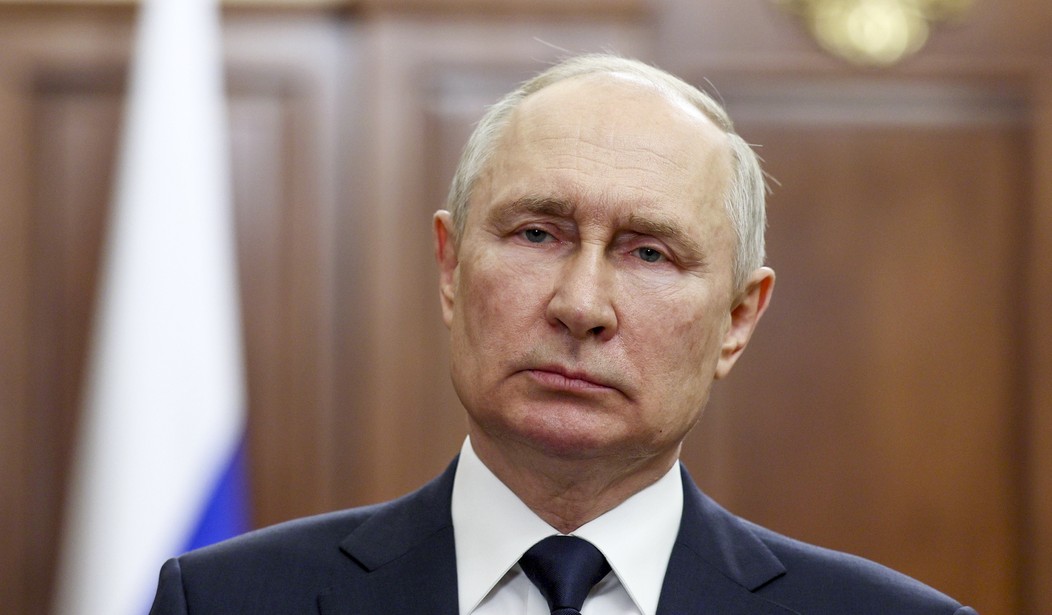There seems to be a connection between Heads of State seeking to silence dissent and the threat, and reality, of war in the world today. War, after all, has been used for millennia to rally “the people” behind a distraction that keeps them from focusing on their loss of freedom.
The sad reality is that, when the thirst for power and control cannot be quenched, it is the intimidated or indoctrinated masses who suffer the most.
While there are plenty of localized turf battles afoot with at least regional implications (Niger-Nigeria comes to mind), the world’s attention of late has been on Vladimir Putin, who, shortly before beginning a full-scale assault on Ukraine, dissolved Russian Prime Minister Dmitry Medvedev’s government and announced new “constitutional reforms.”
To almost no one’s surprise, Putin’s reforms swept through Russia’s constitutional court and both houses of parliament. When a compliant citizenry rubber stamped the deal, Putin, whose term of office was set to expire in 2024, was granted another dozen years to serve – effectively granting him the presidency for life.
Less than a year later, he sent troops into Ukraine for a second time.
In an interview with NPR’s Mary Louise Kelly, reporter Masha Gessen of The New Yorker scoffed at the idea that Putin had by these moves “consolidated” his power.
Gessen said, “He already has it all. So he’s acting paranoid. He’s acting to preempt any possible challenge to his power…. Dictators fall when they’re overconfident; they stay in power when they’re paranoid.”
A decade ago, new Russian laws raised fines for unsanctioned protests to include up to 5 years of forced labor or prison. Putin floated the idea that anyone opposing the Russian government could be part of a “fifth column” undermining the country – a move that effectively silenced his opposition. He then moved to tighten the screws on media and international non-governmental organizations (whom he called “jackals”) by requiring them to register as “foreign agents” and submit to audits, with stiff fines for minor errors. The Russian government claimed the authority to block and blacklist internet sites deemed to publish “extremist” materials. Bloggers were also required to register their true identities with the state and faced potential lawsuits for libeling the government.
Recommended
From Moscow to Minsk - Today, Putin’s closest ally, both against Ukraine, and in holding onto illegitimate power, is Belarus president Alexander Lukashenko, who has held that office since it was first established in 1994. The 2020 Belarus elections were famously deemed by the European Union as “neither free nor fair.” Like Maduro in Venezuela, the EU said that Lukashenko was an illegitimate president.
Indeed, when protests against the election result turned violent, Lukashenko sought to cut populous access to outside information, mocking his opponents as “sheep” being manipulated by “foreign masters.” And today, many of Russia’s Wagner Group mercenaries are in Belarus awaiting orders.
Russia’s other primary European ally has long been Serbia, 95 percent of whose people in a 2022 poll named Russia as a true ally and most of whom named Putin as the world leader they admire the most. A whopping 82 percent of Serbians opposed Western sanctions on Russia over the Ukraine war, which 68 percent said was started not by Russia, but by NATO expansionism.
Surely enough, the 2022 Serbian elections, which saw President Aleksandar Vucic win a second term with 60 percent of the vote, were marred by reports of widespread bribery, intimidation, and gerrymandering. Democracy watchdogs and civil society activists warned that Serbia, which has been seeking admission to the European Union while also holding onto its alliance with Russia, was “sliding towards autocracy.”
One would think that the former Serbian province of Kosovo, a free nation since declaring its independence in 2008, would eschew any actions that might suggest its new democratic government could revert to its former Soviet bloc past. Suppressing freedom of speech and the press might seem abhorrent to everyday Kosovars, and especially to the Kosovo government, which is also seeking membership in the EU – and in NATO.
It was quite a shock, then, for the world to learn that Kosovo prime minister Albin Kurti, who began his career organizing nonviolent protests against the Serbian regime and was later arrested by the Serbian police and put in prison, would resort to anti-democratic attacks on major media outlets in his own nation during the summer of 2023 – and would wage an anti-democratic campaign against Kosovo citizens of Serbian origin.
Kurti’s government recently revoked the license of Artmotion, the nation’s leading cable television provider, and filed criminal charges against TV station Klan Kosova, whose programs air on Artmotion’s network; all over a minor clerical error, and all after Kurti shamelessly rigged an election that installed his own minions as mayors of four small Serb-majority towns.
Kurti’s actions have drawn criticism from free speech advocates and even from former U.S. President Bill Clinton, who asked Kurti, “What major political issue can possibly be advanced by how those four little towns are run?” To little avail, Clinton urged Kurti to “stop this foolishness.”
Maybe it’s a case of delayed Stockholm syndrome.
Maybe Kurti’s subconscious memory has been scarred by his early imprisonment.
Or maybe he, too, is, like Vladimir Putin - “acting paranoid” in an effort to hold onto and consolidate power.
The Putin doctrine of distraction, suppression and control, only recently festering publicly within nations like Serbia cannot be ignored by Washington. The problem facing the West however is that certain Western nations and nongovernmental organizations, too, have been infected with this “distract and control” disease of the paranoid.
























Join the conversation as a VIP Member